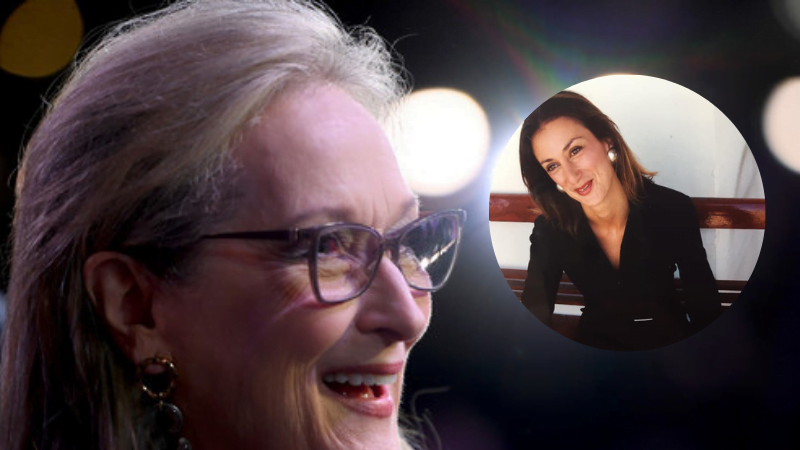We’re not Malta, fortunately.
That was the sentiment expressed by media lawyer Flutura Kusari when discussing the current state of press freedom in Albania with news station Al Jazeera.
Her statement should come as a bit of a shock to anyone familiar with the recent history of that country.
Albania was a bizarre hermit kingdom that closed itself off from the outside world for much of the 20th century. When communism collapsed in 1991, Albania emerged from self-imposed solitude as one of Europe’s poorest countries. Regarded by many in the West as the home of criminals, thieves and corrupt dictators, Albanian citizens haven’t had an easy time escaping their past.
This stunningly beautiful country is working hard to reintegrate with Europe, but it was shaken to the core by a massive scandal earlier this year when the Balkans Investigative Reporting Network and Voice of America published leaked phone calls between crime bosses and high government officials, including Prime Minister Edi Rama, where they could be heard discussing plans to rig the 2016 and 2017 elections.
The leaked recordings shocked the nation, but the ruling Party simply dismissed the accusations. No senior government officials have been arrested or taken to court, despite indisputable evidence of their corruption. Instead, they’ve targeted the messenger, with the Albanian judiciary going after anyone who published this material.
It sounds a lot like Malta, doesn’t it?
Rather than act on the alarming evidence of corruption revealed by leaked FIAU reports on Konrad Mizzi and Kieth Schembri, the government instead called for the whistleblower to be prosecuted. ‘Yes, yes, yes,’ they seemed to be saying, ‘there were allegations of corruption. But leaking that report was a crime!’
Kusari points out further parallels between the two countries. “Before Daphne Caruana Galizia was killed in Malta,” she said, “the Prime Minister of Malta, Joseph Muscat, organised smear campaigns putting the picture of Daphne Caruana Galizia on billboards throughout the country.”
In Albania, “Prime Minister Edi Rama has become very known internationally as someone who goes directly against every single journalist that he does not like. When you have a powerful person naming and shaming journalists, then of course, for the public, it’s very easy when they meet a journalist to slap them or even to kill them.”
Caruana Galizia was Malta’s most visible target, but she wasn’t the only one. I wrote last week about the disgusting attempts to discredit Maltese civil society activist Pia Zammit by dredging up completely unrelated photos from her acting career in order to tar her as a Nazi sympathiser.
The story was published in the newspaper It-Torċa, and quickly circulated through the Labour Party’s closed online hate groups, but it didn’t have the desired effect. Instead of ostracising Zammit, the backlash from Malta’s creative community, independent media and socially concerned citizens simply drew attention to the Party’s attempt to target anyone who dares speak out against it. Zammit has filed two libel suits against It-Torċa in response.
Journalists and outspoken critics are publicly threatened like this for two reasons. One is to shut them up, to make the personal price of reporting on corruption so high that they decide it isn’t worth it to speak out. But the main reason is to silence others. To make everyone else see that, if this could happen to Zammit, then it could happen to you, too. The result is a culture of fear and a conspiracy of silence.
In Albania, Klodiana Lala, a reporter for News 24, had her home sprayed with bullets after she reported on the leaked phone recordings between criminals and high government officials. The attack was meant as a clear warning to her and other journalists to leave the story alone.
But as the Al Jazeera feature made clear, critics are more often targeted with threats, online harassment and smear campaigns rather than outright violence.
Alice Taylor, a journalist for The Shift, is based in Albania and was also interviewed by Al Jazeera. The backlash began for her after she was interviewed by Russia Today. “Pro-government media had started saying I was a Russian spy,” she told Al Jazeera. “They published my photos, said that I was paid by Russia and/or the Opposition Party to undermine democracy, and that I was a traitor to the Albanian people.”
They also targeted Taylor’s family, publishing her partner’s photo and alleging he was a wanted criminal and a violent militant. “It spread like wildfire,” she said. “I received abuse on the street as well […] It got to the point where I didn’t leave the house without someone with me.”
But as Flutura Kusari told Al Jazeera, the situation in Albania still hasn’t descended to the level of Malta. “When we compare ourselves to them,” she said, referring to Malta and Slovakia, countries where journalists were murdered because of their work, “we are not there, fortunately.”
Malta has become an example of everything that can go wrong when corruption spirals out of control and journalists are targeted for talking about it.
The spotlight will be shining on the island again thanks to ‘The Laundromat’, a new film about the Panama Papers. Meryl Streep referred to Malta when she spoke of the true story behind the film at this week’s Venice Film Festival premiere.
“People died and people die still to get the word out,” she said. “Daphne Caruana Galizia, the Maltese journalist who was investigating someone at the top of the government in Malta and their connection with the Panama Papers was blown up in her car in front of her home.”
And still the government of Malta is doing everything it can to avoid holding an independent inquiry into Caruana Galizia’s brutal murder. Ask yourself why.
And then ask yourself whether you really want to live in a society where corrupt politicians rule with impunity, and where looking away is the price of your safety.












